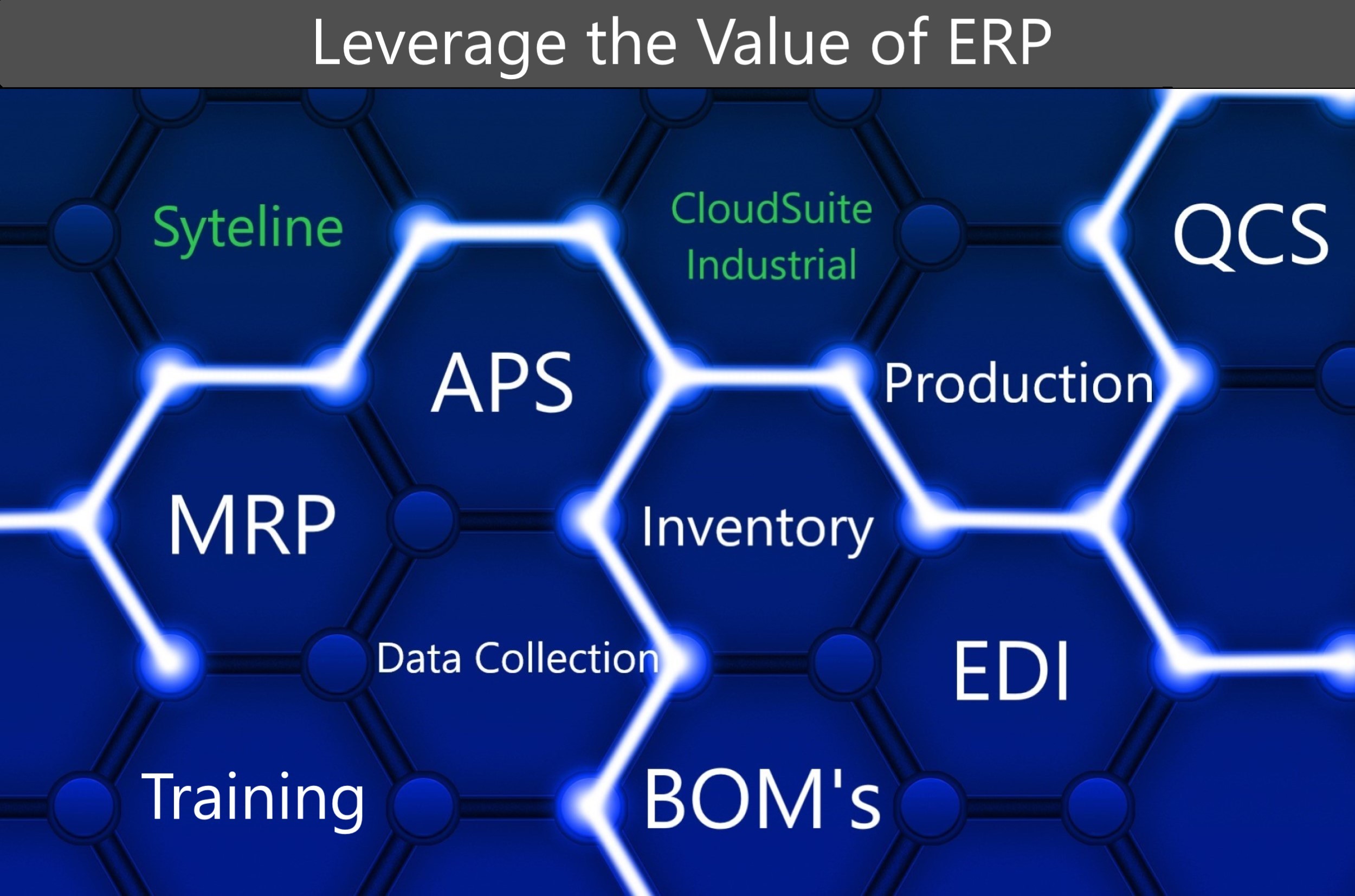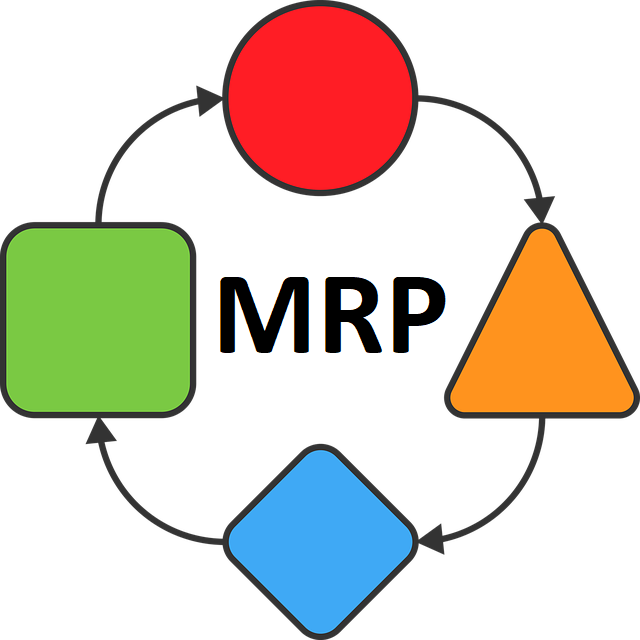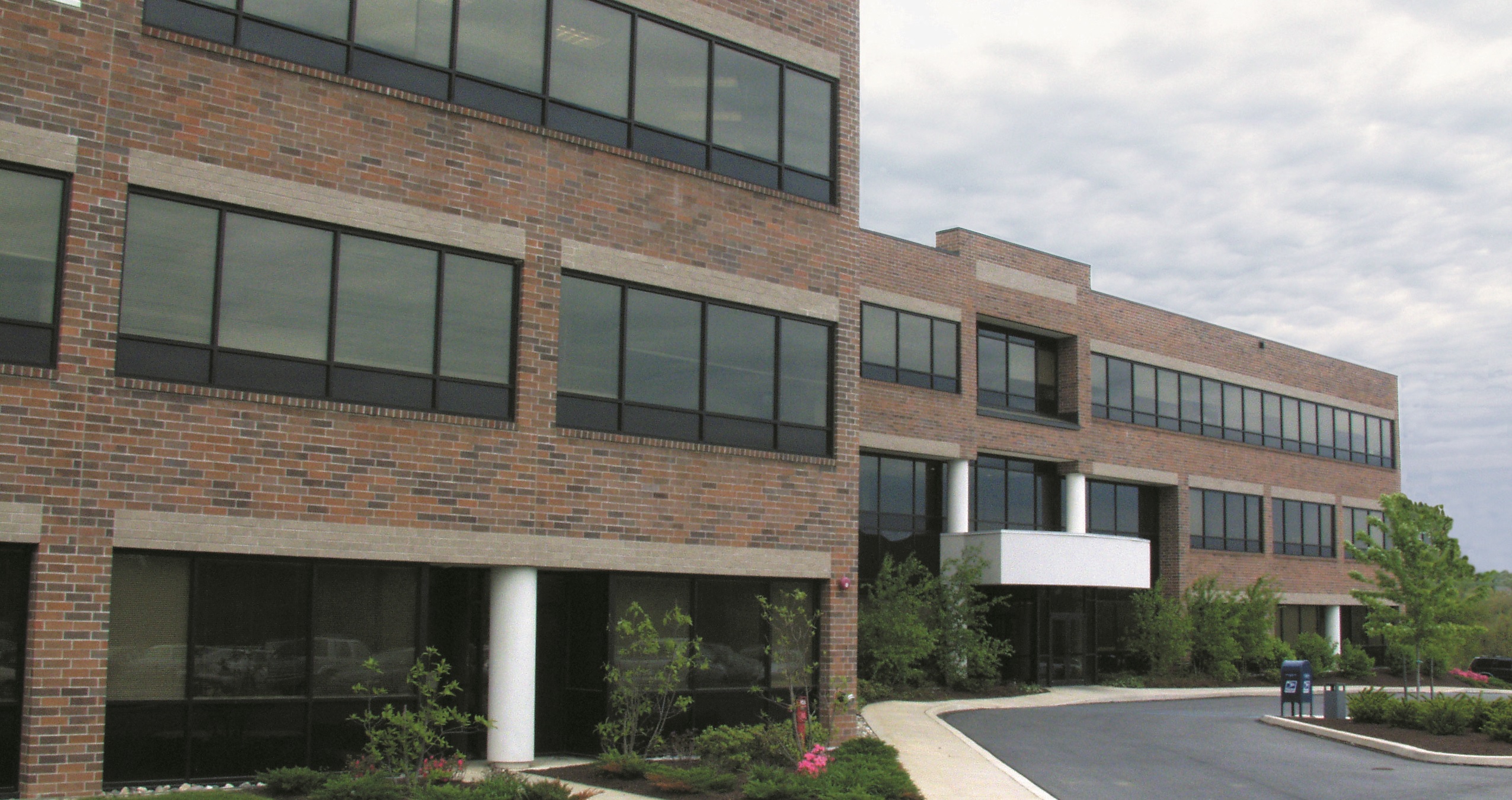Syteline (CloudSuite) ERPEmpowering ERP success through education and support services
Looking to work with an independent Syteline (CloudSuite) Expert?
You already have an successful & established business, but new opportunities have surfaced which are causing you to re-think your strategies or optimize your processes.
Enterprise Resource Planning (ERP) systems and the supporting processes are extremely powerful in optimizing cash flow, profitability, labor, and cost reductions.
We can assist you to re-define strategies and processes to get more out of your ERP investment

Join our Private LinkedIn Group:
Agile & Innovative Business Improvements for Management
Have you taken a leap of faith with an ERP implementation and not received the ROI or streamlined processes you expected?
It’s not surprising, since the majority of companies believe the ROI is in the software itself….this is simply not the truth. True ROI is achieved by developing adoption of the system and a strategic implementation. True ROI is achieved through the people using the system with an industry best-practice approach.
There are several key points which have hindered ERP implementations for quite some time. Here are a few common bullet points:
- ERP systems are implemented to mimic existing, generally inefficient business processes
- Companies aren’t prepared or committed to adopt to new (SOP) standard operating procedures
- Piloting and testing phases of an ERP implementation are not thorough, resulting in gaps during Go-Live
- Processes mappings aren’t completed during the planning phase
- Implementation where lead by consultants without manufacturing experience in the real world
How do business’ overcome the complexity or poor ROI with an ERP System?
By following a strategic plan to address all phases of the implementation within an organization.
We’ve created a “RoadMap” to lead our clients through these phases. The great thing about our RoadMap is it can be applied to endless implementation, not only MRP and Planning Systems.

Roadmap to Excellence
The Roadmap to Excellence
Phase 1: Build Organizational Commitment
An ERP System will have a dramatic impact to a business, hopefully in a positive way. When an initiative has a global impact to a business it’s critical to have organizational commitment before starting. This process will vary from business-to-business, some will require a presentation to the Executive level or maybe a business case or project analysis needs to be drafted. If you can’t get commitment from the top level of a business there is little chance the project or initiative will succeed. to its fullest extent.
- Top Level Management Approach
- Create a “Sense of Urgency”
- Educate company leaders and power users
Phase 2: Document the Process
An ERP System requires many complex systems and processes to work together for the entire system to function properly. When performing any type of implementation or change, visually mapping out the existing and proposed processes is important step. This will allow you to analyze the process to identify gaps also cross-department conflicts.
- Name
- Scope
- Inputs & Outputs
- Visualize the Process in a Workflow
- Document the Gap Analysis between Current & Proposed Process
Phase 3: Define KPI’s
You will need to have the proper Key Performance Indicators identified to enable you to measure you continued effectiveness. Remember, just because you can measure it doesn’t mean it’s valuable, worthwhile, or a KPI. KPIs are just that they are “Key” Performance Indicators. Make sure when defining your KPIs they aren’t conflicting each other. If they do, you will enable siloed functional areas or departments to develop.
- Determine the Most Important Objectives
- Delivered In-Full & On-Time (DIFOT)
- Cash to Cycle Time (Velocity)
- Labor Utilization, Efficiency, and Productivity
- Actual vs. Budget
- Inventory Turns
- Forecast Accuracy
- Indirect Labor Hours
Phase 4: Cross Functional Collaboration
In Phase 4 we need to promote collaboration between functional experts, departments, and disciplines. This is so important for an ERP System, since you are working with so many systems & process o make it work seamlessly.
If the proper collaboration isn’t developed there is significant business risk through excessive costs, missed shipments, and other failed commitments.
- Different Functional Expertise Working Toward a Common Goal
- Create a Culture of Continuous Improvement
- Increase Teamwork by Building Relationships
- Improve Communications
Phase 5: Identify Key Disciplines
In this segment of the Roadmap to Excellence we identify and determine our Key Disciplines. These are specific to your ERP System and business. Expertise needs to be developed in your business over-time, in the interim you can utilise qualified consultants.
- Procurement
- Customer Service
- MRP & Planning Systems
- Mnaufacturing
- Data Collection
- Development
- Accounting
- Root Cause Analysis
Phase 6: Change Management
When you have your ERP System working in a stable manner, you need to have a Change Management system in place. This doesn’t mean you need to implement a complex Change Management system. This could be as simple as a home grown system, in the end you only need a system to manage and control changes. Ad-hoc changes can have adverse effects toward the stability and accuracy of your ERP System.
- Set the Expectation Change will Happens
- Understand the ”How Will it Affect Me” Idea
- Don’t Try and Make Negatives into Positives
- Embrace the Change Cycle
- Pay Attention to the Resistance Prone Team Members
- Protocols in Place to Review & Approve Process Changes
Our Strategy...
Our strategy is to focus efforts and resources on clients who understand change isn’t easy and are committed to success.
We understand your success is a collaboration between 4 key areas. Successful organizations have embraced these areas and made them the foundation of their culture.

- Data – A business generates a tremendous amount of information and most business’ aren’t analyzing this data. Today being data driven is required to achieve optimal success.
- Productivity – If your teams are busy and not productive, you’ve got a problem. You need to be measuring productivity against all departments.
- Training – Team members need to be continually trained. Training is more than showing someone how to do something. Proper training with work instructions and visual workflows will yield a positive ROI.
- Engagement – Everyone in your organization needs to be engaged in the success of the company. An engaged team member is shown how to decrease operational costs by reducing lost-time and increasing productivity.

Analytics & Business Intelligence

Strategy

Workflows & Processes

Material Requirements Planning
If you’re looking for a company to work with you to improve your business, contact us for a no obligation conversation
RSS Business Resources, LLC 1275 Glenlivet Drive, Suite 100 Allentown, PA 18106-3107


